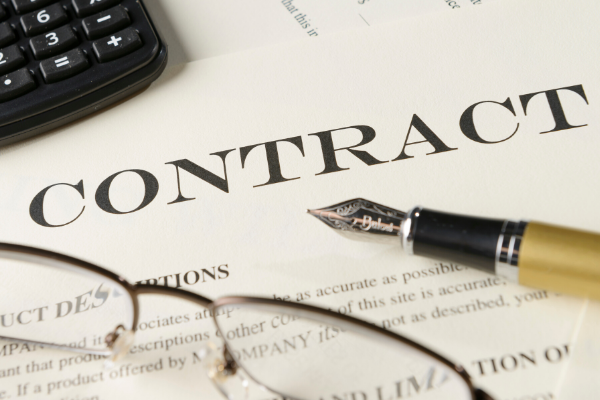
Under general principals of contract law, a party has a defense against performing under a contract where that performance becomes impossible due to unforeseeable events outside of the parties’ control. If disaster strikes, a non-performing party can resort to a claim of “force majeure”, sometimes called “acts of God”, to forgive them from living up to their responsibilities.
A pandemic can be one of those events. Some commonly listed force majeure events include natural disasters such as floods, earthquakes, or hurricanes; war; terrorist acts; government action such as expropriations or changes in laws; union activities such as strikes and slow-downs; shortages of necessary materials… and, if the contract provides for them, also epidemics and quarantines.
General economic conditions are not force majeure events. Governmental restrictions may qualify, if directly related to the force majeure event, and if they directly relate to the alleged breach of contract, but reduced demand and business are usually found to be more a fact of life than an act of God:
While relatively few cases have interpreted the impact of pandemic on force majeure clauses, previous cases do offer some guidance. Courts have found that generalized economic hardship or increase in expenses, without more, does not constitute a force majeure event. As a result, it will be difficult to avoid an obligation to purchase goods or services merely because customer demand has decreased. Also, even if an unforeseeable and extreme disaster occurs, a contract’s force majeure provision will still control with regard to the parties obligations and may override other common law defenses used to avoid performance. For this reason, it is imperative that companies read contracts closely, or consider engaging counsel, to determine what rights they have before acting (or not acting) on a contract. Finally, courts are split as to whether intervening governmental acts (such as changes of regulations, emergency declarations, etc.) will excuse performance under contract, but the contract itself will still likely control as to which party bears the risk of the nonperformance.
National Law Review: COVID-19: Force Majere Event? March 19, 2020
If a contract’s force majeure clause includes terms such as “epidemic” or “quarantine” or “pandemic”, then the clause can be invoked during the current Covid-19 crisis to avoid living up to contractual responsibilities that have been rendered impossible. Even if a contract has a force majeure clause that does not include such terms, it may still be possible to defend against an action for breach relying on the force majeure clause, if the language of the clause is broad enough to encapsulate disasters such as pandemics.
However, in any case where such a clause is invoked, in order for the defense to work, the party invoking it must also show that they took steps to mitigate the damage and that full performance was truly impossible – together with any other contractual obligations that might be necessary to adhere to when invoking the clause.
If there is no force majeure clause at all, or if there is no reasonable way to bring the COVID-19 pandemic within the terms of the force majeure claus, then there still will be defenses to breach or non-performance on the commonlaw bases of impossibility or frustration of purpose.
All of these defenses are pretty strict. The general principle of contract law is that the parties to an agreement assume the risk of their own non-performance unless the contract itself says otherwise. In order to claim impossibility or frustration, the defending party has to show that the event offends, in a way that was unforeseen to the contracting parties, a foundational assumption of the agreement. For instance: if the subject matter of the contract turns out to be non-existent, then the contract will be impossible to perform. However, it is not a basic assumption of the parties that market conditions or financial situations will remain favourable to the parties.
In this case the event is a global pandemic. The problem with pandemics (well, one of the many problems with pandemics) is that they only indirectly affect businesses. A pandemic is not that kind of natural event that destroys infrastructure or physically prevents businesses from operating. Instead, it is the social and governmental response to the pandemic that has the effect of interfering with business viability. Laws that are changed to address it are laws of general application that only affect your ability to live up to your contracts.
At the end of the day: contracts are enforceable. Rent is payable. If rent is not paid, that is a breach of contract. Force majeure is a defense available to a claim for that breach. As identified above, general economic effects do not constitute a force majeure event.
Unless the contract specifically defines pandemic as a force-majeure escape hatch, it seems unlikely that it would be considered one.
However, the global nature of the coronavirus crisis lends itself to other practical considerations. Unless there are particular circumstances that are quite significantly different than those being faced by most businesses today, it may not be in anyone’s business interests to force strict compliance with contracts right now. After all, if all contracts are strictly enforced, that may have uncomfortable effects on the very parties who insist on strict enforcement:
As the COVID-19 pandemic continues to develop, businesses should take proactive steps to ensure continuity of operations sufficient to meet existing contractual obligations and evaluate whether their counterparties are doing the same. If companies expect that COVID-19 may result in their own or their counterparties’ inability to satisfy contractual obligations, they should assess the viability of either force majeure or common law principles of nonperformance excusal. This assessment may also be rendered more complicated by the fact that many companies will be on both sides of this issue, as the performing party in some cases or the receiving party in others… Businesses may wish to avail themselves of a force majeure clause or the common law principles in connection with certain contracts, but resist such a claim by their counterparties to other contracts. Companies will therefore need to be mindful of the broader implications of asserting these provisions and principles.
P.Weiss: Force Majeure under the coronavirus Pandemic: March 16, 2020
COVID-19 related contract breaches will cut in all directions. If you insist on strict compliance with others, they may insist on strict compliance with you.
Andrew Powell practices a wide range of civil litigation with a focus on business or commercial disputes, including breach of contract, lease and land use issues, corporate disputes including liquidations and shareholder issues, and realization and enforcement. Andrew also practices estate litigation, including wills variation claims.






